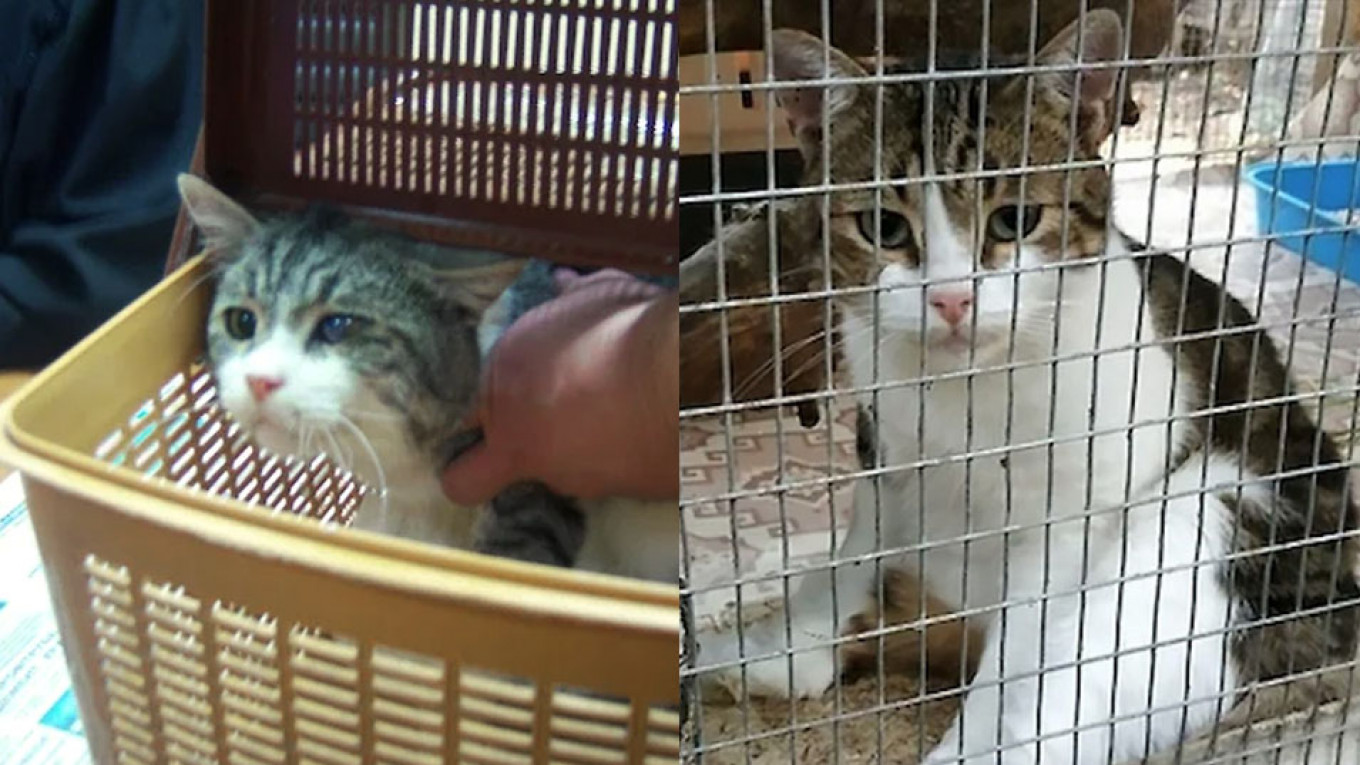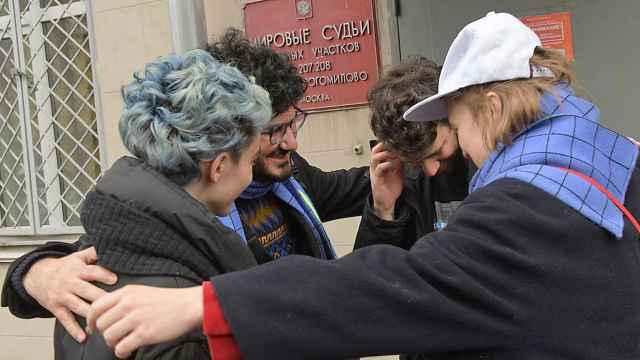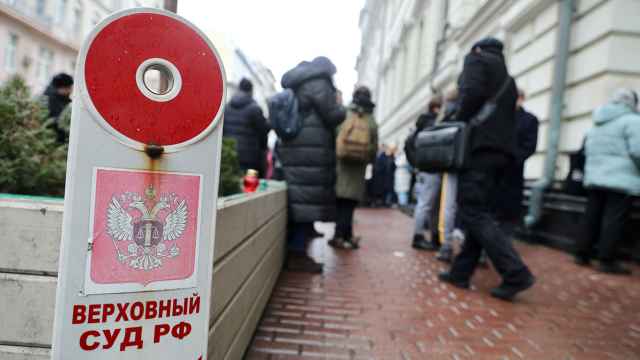A cat who was allegedly used to smuggle drugs into a Russian prison finally turned up for one of its court hearings after disappearing months earlier — but observers couldn’t help but notice how different it looked.
The cat is a key piece of evidence in a criminal case against two suspects accused of transporting hashish and amphetamines into a Tula region prison using a secret pocket in the cat’s collar. Animal keepers responsible for holding the animal as evidence said they had misplaced it sometime last winter.
During a court hearing Monday, prosecutors nevertheless said they had managed to find the missing cat, setting its crate on the judge’s desk, the Kommersant business daily reported.
This cat, however, had different markings and coloring than the alleged feline drug-trafficker. Photos and videos taken when the case was first opened show a gray and black tabby with a white nose, chest and legs — and while the prosecutors’ evidence indeed looked similar, the defense argued it wasn't the same animal.
“It turns out that they brought in another cat,” Dmitry Sotnikov, a lawyer for one of the defendants, told Kommersant.
Sotnikov and his client had originally requested that investigators test how the original cat behaves in a simulated drug-smuggling operation to show the court whether such a feat is even possible.
“We proposed to install the car in the place where it was allegedly detained, let the cat go and see if he can even enter the prison or if he knows the person who allegedly fed him,” Sotnikov said.
The court postponed the hearing to Nov. 14, Sotnikov said, after it heard the defense’s allegations of an evidence swap.
Lawyers interviewed by Kommersant said that replacing a piece of evidence in a criminal case with a similar object is illegal — even if it is just a cat.
The fugitive feline in question still hasn’t been found, so we can only hope he’s sunbathing on a tropical island while under witness protection.
A Message from The Moscow Times:
Dear readers,
We are facing unprecedented challenges. Russia's Prosecutor General's Office has designated The Moscow Times as an "undesirable" organization, criminalizing our work and putting our staff at risk of prosecution. This follows our earlier unjust labeling as a "foreign agent."
These actions are direct attempts to silence independent journalism in Russia. The authorities claim our work "discredits the decisions of the Russian leadership." We see things differently: we strive to provide accurate, unbiased reporting on Russia.
We, the journalists of The Moscow Times, refuse to be silenced. But to continue our work, we need your help.
Your support, no matter how small, makes a world of difference. If you can, please support us monthly starting from just $2. It's quick to set up, and every contribution makes a significant impact.
By supporting The Moscow Times, you're defending open, independent journalism in the face of repression. Thank you for standing with us.
Remind me later.






